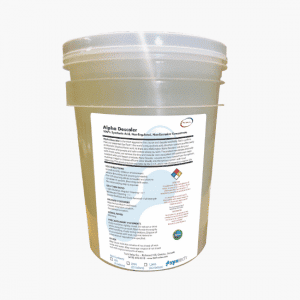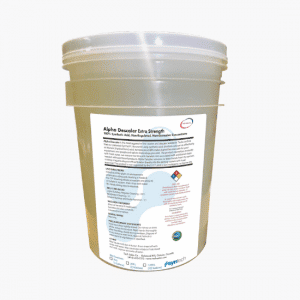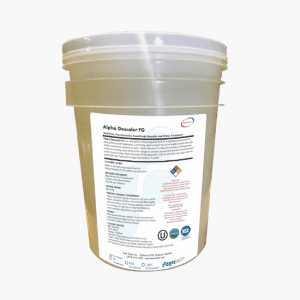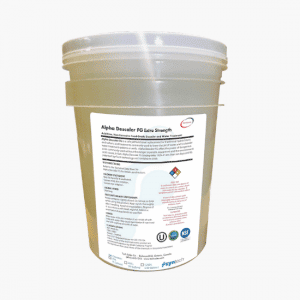The word “inhibited HCl” is usually used to indicate hydrochloric acid with acid corrosion inhibitor. Hydrochloric acid is usually used as diluted in water, particularly 3 to 10% which varies by the fouling characteristics and material in the system.
Acid corrosion inhibitor means organic compound which adsorbs metal surface to protect metal from acid atmosphere. It is commercially available and typically composed of several mixture of organic amines, imines, and/or thioureas, and so on. Virtually any product advertised to descaling that contains hydrochloric acid is inhibited HCl. It may or may not have a small amount of other acids like citric acid added to spike the solution to make it perform a bit faster and to set it apart from other HCl products and many different formulations exist claiming to be the best, The actual amount of scale removed is dependent on the concentration of HCl. Just under 10% is the norm for most industrial descalers promoted and sold and dissolve about the same amount of scale and in the same amount of time. Although, one should be suspicious if a larger than normal amount of scale is removed to insure it really is a 10% concentration and not more. Some countries have restrictions on the import of HCl in higher concentrations than 10%.
There are a many products from chemical inhibitor companies in the market and several types depend on the applications such as hydrochloric acid, sulfuric acid, organic acids, and so on.
You should be careful to apply these acids, because hydrochloric acid, even inhibited, could attack some materials, like highly mechanically arranged devices and could lead to serious damage like cracking or partially detrimental corrosion. Especially for austenitic stainless steel, when it is finely modified. And regardless of using an inhibitor, HCL is still hazardous to personnel and avoidance of contact with skin, eyes, and inhalation is still advised and those limits depend on the concentration of the acid regardless of inhibitors used.




